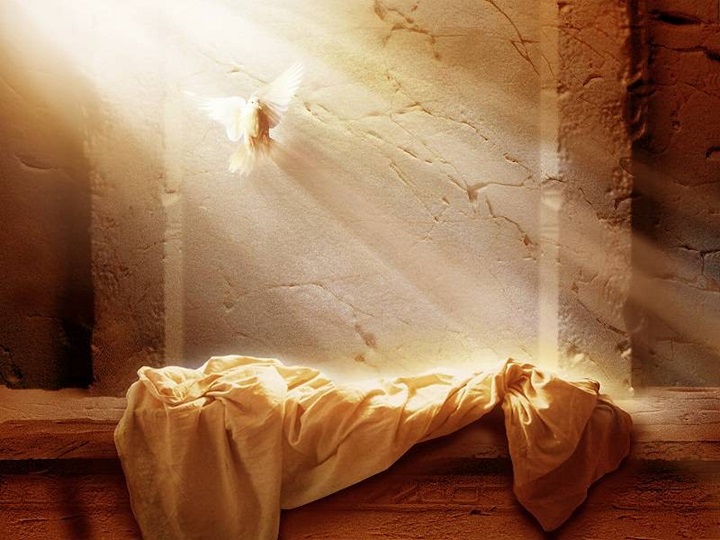Singular Cerebrations: Resurrection Time
I had a funny caption for this, but then I remembered that my mom reads this column, so you'll have to come up with your own joke about Jesus.
Springtime brings with it feelings of refreshment, fertility, and renewal. For those of us that live in places with all four seasons, we've just managed to reclaim life back from the death of winter; flowers are growing, birds are chirping, and everything is fresh and green again. It's a time of resurrection, both figuratively and literally, so it's no surprise that Spring was chosen to host the holiday Easter.
Now, as you may or may not be aware, Easter is likely a christianized pagan holiday that celebrated the spring equinox, at least in a European sense. There is evidence that early Christians celebrated a Christian Passover as early as the 2nd century, but it wasn't until they encountered the Germanic people and their springtime festival for the goddess Eostre that they began to refer to it as Easter. So, it is likely that Christians were celebrating their own form of spring renewal prior to ever having met Germanic pagans, and most of what they took from the pagan festival was the name (and a few symbols, like rabbits and eggs). What's really interesting to me, though, is that this time of year seems to naturally bring thoughts of resurrection and renewal.
Sorry, no joke here either. Believe me, it hurts me more than it hurts you.
Nor are these themes specific to Christians and Germanic pagans. The Sumerians had Inanna, or Ishtar, who was hung naked on a stake prior to being resurrected and returning from the underworld; the Egyptians held Horus as a symbol of life and rebirth; and the Romans had Mithras, whose followers also celebrated the spring equinox.
The ancient Greeks, too, had plenty of legends surrounding resurrection. Asclepius was killed and then resurrected by Zeus; Achilles was saved from the funeral pyre by his mother; and the legendary characters Alcmene, Castor, Heracles, and Melicertes were all considered at various times to have been resurrected to physical immortality.
These similarities weren't lost on the early Christians, of course, and they actually used the parallels in the stories of those they were trying to convert as a means to legitimize the resurrection of Jesus; which, honestly, is just damn good marketing. I'm not going to tell you that any one of these religions is right, because they all are. They all nailed that part of the human spirit that believes in the cyclical nature of existence—that no matter how many times things look down, they'll always look up again eventually. It's the belief, intrinsic to all mankind, that wherever there is death, there is also resurrection. And that this belief is something we all seem to have in common makes me almost impossibly optimistic for humanity. Happy Easter!
Yours in Impossibility,
Tobias


